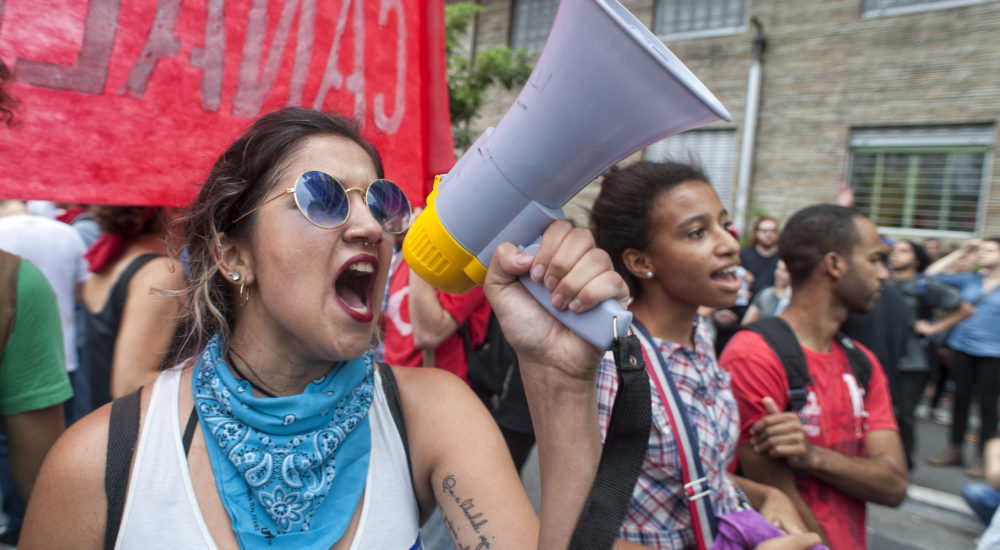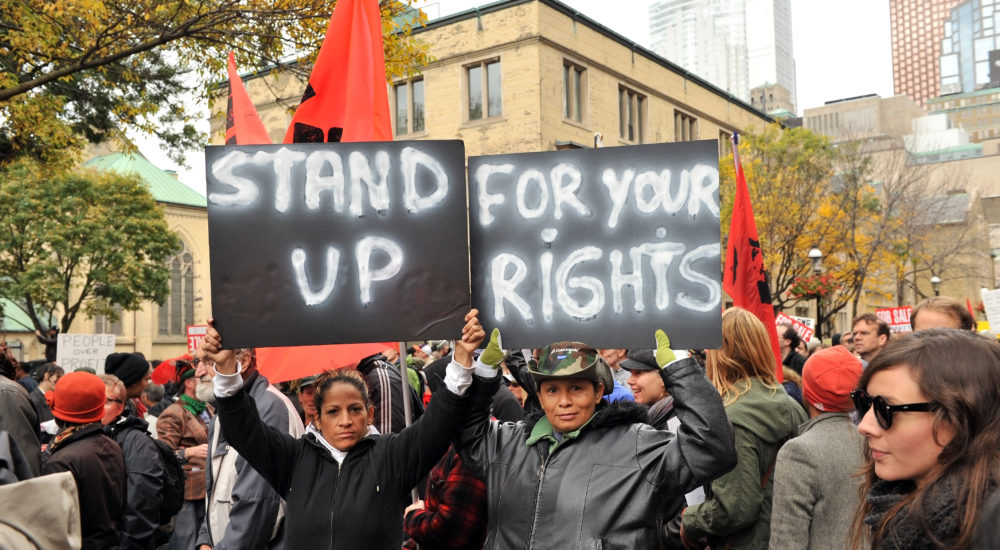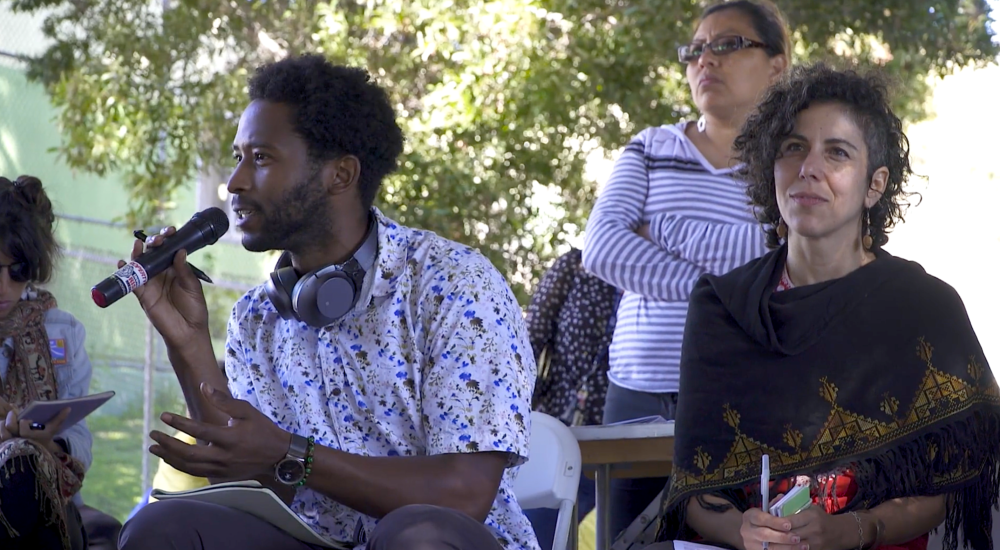“This is no time … to take the tranquilizing drug of gradualism. Now is the time to make real the promises of democracy. Now is the time to rise from the dark and desolate valley of segregation to the sunlit path of racial justice. Now is the time…” Rev. Dr. Martin Luther King, Jr.
On this day – a day of collective remembrance of the life and legacy of Rev. Dr. Martin Luther King, Jr. – we are faced with the same urgency of action to advance democracy and racial justice in the United States as when Dr. King made this call to action in his “I Have a Dream Speech” at the March on Washington in 1963.
At this moment, the nation is reeling from the persistent and baseless claims of fraud in the recent election, as well as from the shock of the violent insurrection that took place on the day the Electoral College was to certify the results of the Presidential election. There is widespread acknowledgement that this armed insurgency, organized by extremists operating, as they understood it, at the behest of the President, was rooted in white supremacist ideology. As Rashawn Ray, a Fellow in Governance Studies at the Brookings Institution writes, “Make no mistake, the Capitol insurgency was about making America great for white people.”
But even before this violent attack on democracy, this country had already been experiencing a gradual erosion of our democratic system of governance. In their article, “Towards Consolidated Democracy,” democratic theorists Juan Linz and Alfred Stepan write:
“No regime should be called a democracy unless its rulers govern democratically. If freely elected executives (no matter what the magnitude of their majority) infringe the constitution, violate the rights of individuals and minorities, impinge upon the legitimate functions of the legislature, and thus fail to rule within the bounds of a state of law, their regimes are not democracies.”
The violent attack on the Capitol, coupled with extent to which some members of the outgoing administration have been behaving in precisely the way Linz and Stepan describe – with the intention of consolidating elite power at the expense of other members of our society, and with close to total impunity – calls into question whether we still live under a democratic system of governance.
And yet.
This summer, after the violent murder of George Floyd at the hands of the police, millions of people took to the streets in a non-violent uprising – considered the largest mass movement in U.S. history – to assert that Black Lives Matter, and that the long history of racist police and other institutional violence against communities of color could not continue.
And yet.
In the recent elections, amid a devastating pandemic that disproportionately impacted BIPOC and low-income communities, these same communities led massive voter outreach and education campaigns, mobilized, cast their votes, and – using the democratic process – reclaimed power from those who would wrest it from and wield it against them.
And yet.
In a historic run-off election in Georgia, communities of color led a massive Get Out the Vote campaign and elected new leaders who shared their inclusive vision of racial justice and a truly accountable democracy. One of these newly elected officials was Rev. Raphael Warnock, the pastor of Ebenezer Baptist Church in Atlanta, Georgia, the same church where Rev. Dr. Martin Luther King, Jr. served as pastor.
Our nation is at a crossroads.
Yes, the democratic institutions that many thought were unshakeable have been shaken. But, despite this, democracy is welling up – in every corner of this country, from Arizona, to Georgia, to North Carolina, to Pennsylvania.
Democracy is welling up as protests, mass mobilizations, and GOTV campaigns. It is welling up as people from BIPOC and low-income communities running for elected office, and as elected officials being held accountable to grassroots communities that elected them. Democracy is also welling up in myriad other, unpredictable ways, as an organic groundswell of movement energy connects to an increasingly creative, collaborative, and powerful movement infrastructure coordinated by both long-term and emerging grassroots leaders.
This organizing in defense of democracy – and in support of a vision of a stronger, deeper, democracy that is truly of the people, by the people and for the people – is being led by the communities who have historically been most directly impacted by systems of oppression.
As we stand as a nation at this crossroads, it is a time for all of us, especially those of us who are not at the frontlines of this struggle, to ask ourselves the question:
“Which side are you on?”
If we are on the side of democracy – as an aspirational goal, as a commitment, as a practice, as a way of being in the world – it is a time for us to put our energy and our resources into supporting these movements for democracy. Because democracy is not something that exists in and of itself. It is something we create, individually and collectively, through our every thought, our every decision, our every action.
And as was the case at the time of Rev. Dr. Martin Luther King, Jr., now is not the time for gradualism. We cannot afford to be tentative, or to act with reserve. Now is the time for bold, radical action rooted in deep solidarity with the frontline communities leading both the defense of our democracy and the creative re-imagining of what democracy can be and must become.
As Our Board President Linda Stout writes in her book Bridging the Class Divide and Other Lessons from Grassroots Organizing:
“…I believe that if we don’t make radical changes in our society, we are truly on the verge of self-destruction. We are in serious crisis. We must work together to make real and lasting changes if we are to survive as families, as communities, and as a democracy ensuring equality and freedom for everyone… The time to make a change is now.”
We at the Solidago Foundation have recently committed to spend down all our existing assets over the next two years in support of this movement for a new democracy. We are committed to learning from and with those leading this work about how we, as a progressive grant-making foundation focused on building grassroots power, can make the most meaningful contribution at this time with the resources we have available, in a way that is aligned with our purpose as a 501(c)3 organization. The same is true for the See Forward Fund, in its 501(c)4 focused work. We are humbled and grateful to be part of this movement.
With Love and Solidarity,
Maggie Russell-Ciardi
Managing Director, Solidago Foundation



